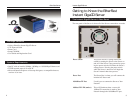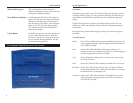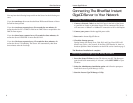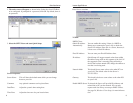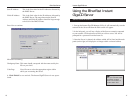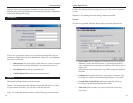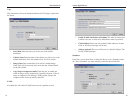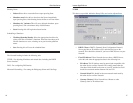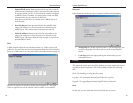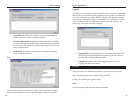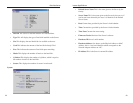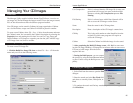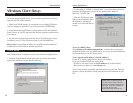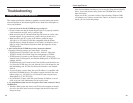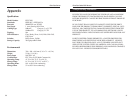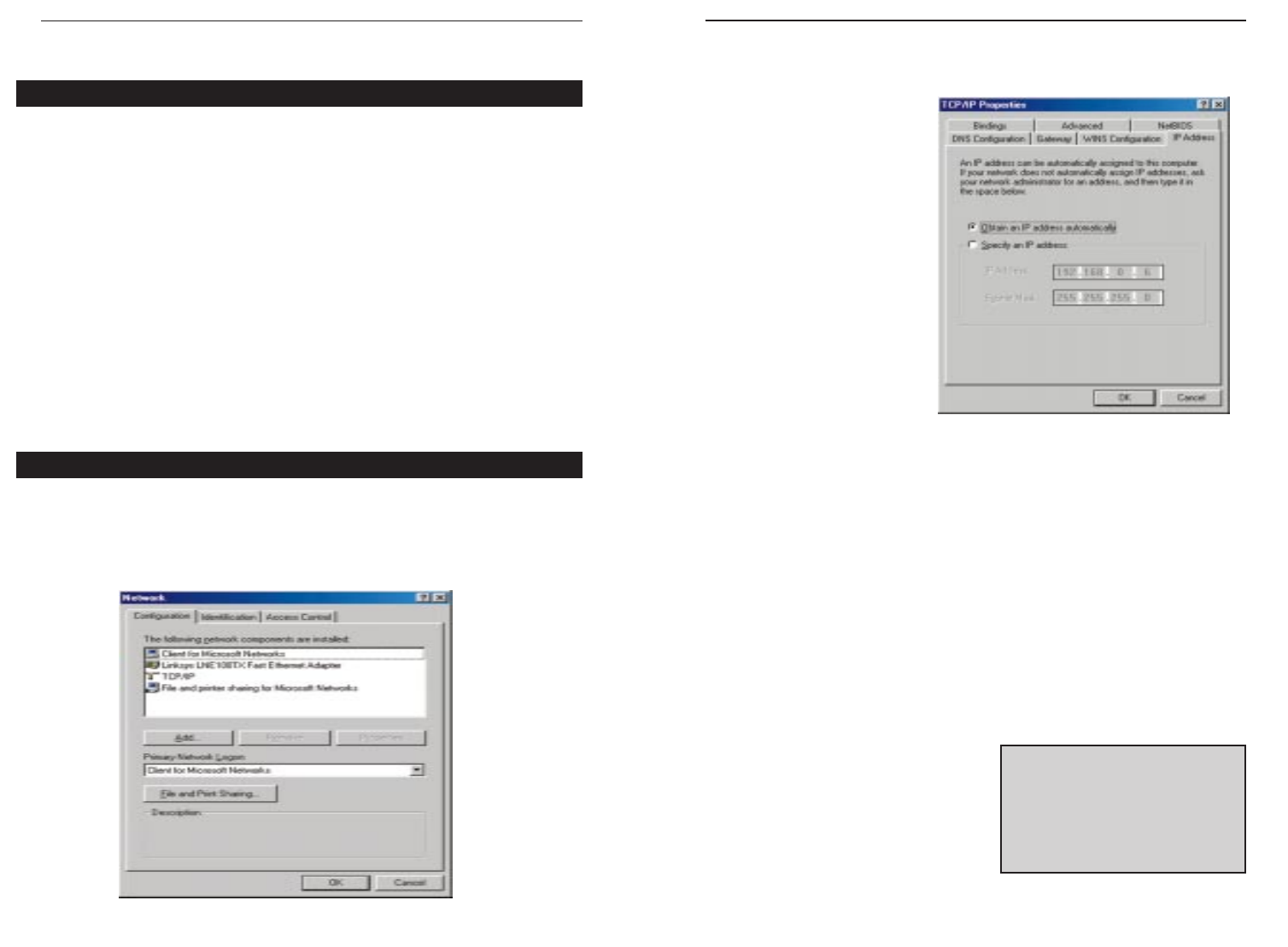
Instant GigaCD Server
2726
2. If a line such as “TCP/IP -> Network Card” is not listed, then you need to
install the TCP/IP protocol on your PC by selecting Add - Protocol -
Microsoft - TCP/IP - OK.
3. With the TCP/IP entry high-
lighted, select Properties. Go to
the IP Address tab and you
should see a screen like the fol-
lowing:
To act as a DHCP Client
Select Obtain an IP Address Automatically, as shown above. If you have
enabled the Server to act as a DHCP Server, it will now provide IP Addresses
(and related data) to your PC when it boots.
To use “Specify an IP address” (fixed IP Address)
If your PC is already configured, no changes are required.
If you just installed TCP/IP, you need to enter:
IP Address and Subnet mask (on the IP Address tab, as shown above)
Default Gateway Address (on the Gateway tab)
These values must be compatible with other devices on your LAN. Each PC
requires a unique IP Address (usually only the last field is different on each
PC).
EtherFast Series
Windows Client Setup
To use the Instant GigaCD Server, you will need to perform the following
setup on each PC in Your Network.
1. Check your TCP/IP settings. If you already have a working TCP/IP net-
work, no changes are required. If you do not, proceed to TCP/IP Setup.
2. Install the Instant GigaCD Server’s Client software. This will install the
Server’s driver on your PC and install the Selector program to enable access
to cd images.
3. Use the Selector program to locate the Server. The CD images are then
available to you as if a real CD were located in your CD-ROM drive.
Please Note: If using Windows 2000, you can NOT select the number of
Virtual Drives to be created, or the drive letter used.
The TCP/IP protocol is required in order to use the Instant GigaCD Server.
1. Select the Control Panel from the Start menu and choose the Network
option. You should see a screen like the following:
NNoottee::
The Gateway is the IP Address
of your router or internet gateway. If
you don’t have a router or internet
gateway, the address should be left
at 0.0.0.0. If you have a Router on
your LAN, ask your LAN
Administrator what values to use.
Overview
TCP/IP Setup



